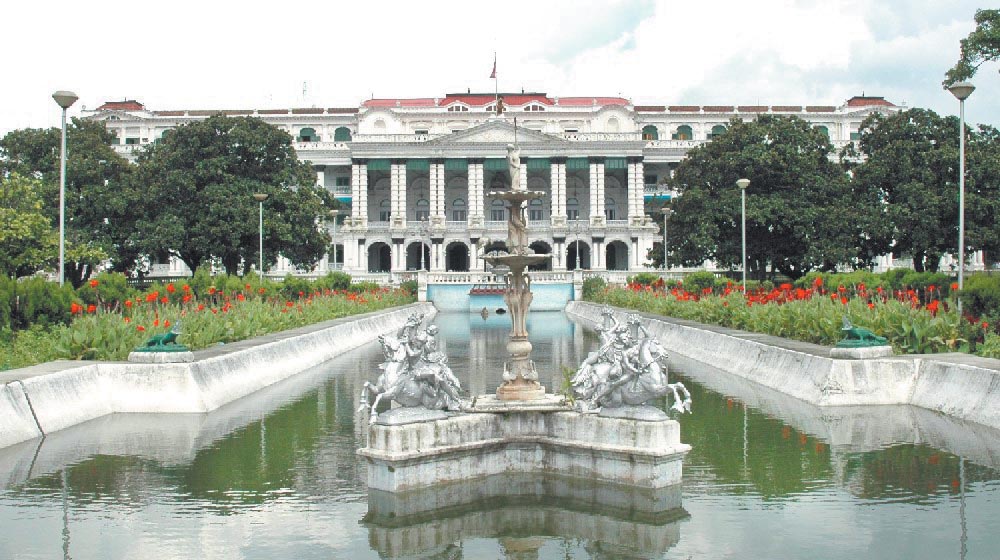Govt removes key provisions in poll related bills
Kathmandu, October 3
The government registered three election-related bills at the Legislature Parliament Secretariat yesterday and is planning to table the bills at tomorrow’s House meeting.
However, Election Commission is miffed at the government for removing some of the provisions proposed by it in the bill to reform the election system.
The three bills include Bill to Amend and Integrate Laws Related to Functions, Duties and Powers of Election Commission; Bill to Amend and Integrate Laws Related to Voters’ List and Bill to Amend and Integrate Laws Related to Political Parties.
After these bills become laws, two more laws Election Offence and Punishment Act and Local Bodies’ Election Procedure Act – are needed to clear the way for holding polls.
The Bill to Amend and Integrate Laws Related to Functions, Duties and Powers of Election Commission gives the government a mandate to announce poll dates. Although the EC had forwarded a draft bill to the government with a provision of mandating the EC to announce election dates, the government removed the provision and reserved the power in the government.
“The commission has serious objection to the mandate given to the government of announcing election dates. If the quality of elections is to be ensured the commission should be mandated to announce the date, as it is the sole authority to hold the polls,” EC Commissioner Ila Sharma told THT.
There is no justification of having a constitutional body if the home ministry can hold the polls on its own and decide everything, she added.
Two or more parties can take part in elections jointly under a single election symbol, according to a provision mentioned in the Bill to Amend and Integrate Laws Related to Political Parties. It will allow parties to make alliances and fight elections jointly.
If an elected member defects from the party on whose ticket s/he was elected, his/her seat would be vacated automatically, as per the provision.
However, if at least 40 per cent members of the central committee or the parliamentary party of the party formed a new party or merged with another party, it would not be regarded as defection. Their seats in the House will remain intact even after relinquishing the party.
However, the merged groups cannot split again for up to five years.
The commission can fine up to Rs 50,000 and bar a political party from participating in at least two elections if it fails to submit audit report for three consecutive years and does not constitute an organisational structure following the principle of proportionate inclusion.
“The commission had proposed a provision of scrapping a party’s registration if it failed to submit audit report as it created economic irregularities in the parties. However, the government deleted this provision,” said EC Commissioner Sharma.
The commission had also proposed that the government should financially support the parties that secured over 1.5 per cent votes to control financial anomalies during elections, she said, adding, “However, the government removed this provision as well.”
The government has proposed not to register voters’ names after announcing poll dates, going against the EC’s proposal. “The commission is capable of registering voters’ names up to a certain announced time even after announcement of election date.
As people have a tendency of getting registered only after announcement of the election date, the proposed provision will deprive voters from voting,” commissioner Sharma said.






